Migrate Flow CFG File
This option migrates existing 32bit Flow .CFG export files into the Statelake format.
The History block will show what .CFG Files have already been migrated, and any that will be migrated subsequently will be added to this list. On your first visit, this window will be empty.
To continue after selecting this option, click Next.

Only select Finished if you have already migrated all of the elements you require, and wish to leave the Statelake Migration Wizard.
The next screen window processes your selection across 3 easy steps.
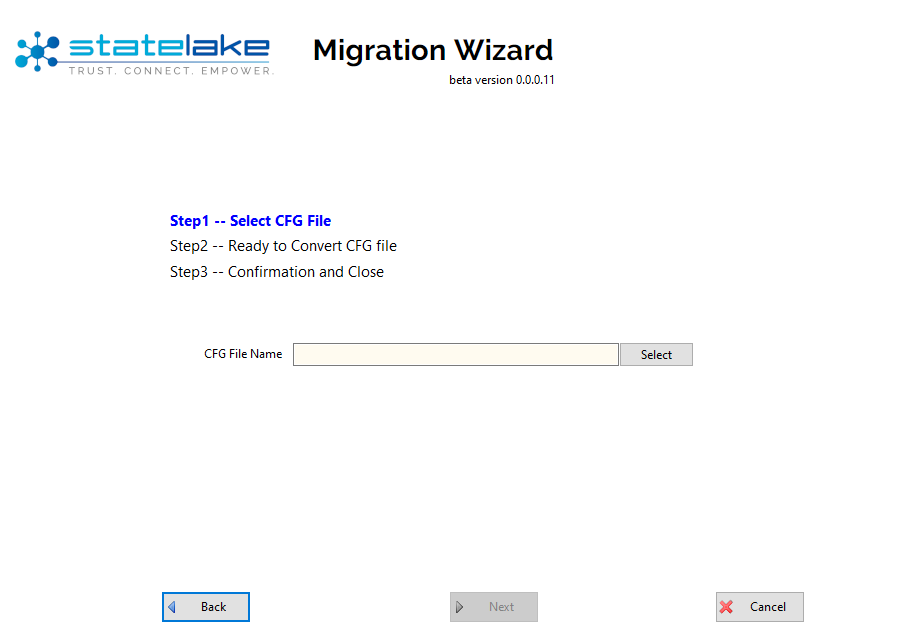
Step 1 – Select CFG File – there is one field on this screen, for the CFG File Name.
You can either type in the name of the file along with the full path, if known, else click the Select button to see a drop-down directory list. Using the Select button, find the path/sub‑directory that holds the exported file you wish to migrate, and select that file with the Open button.
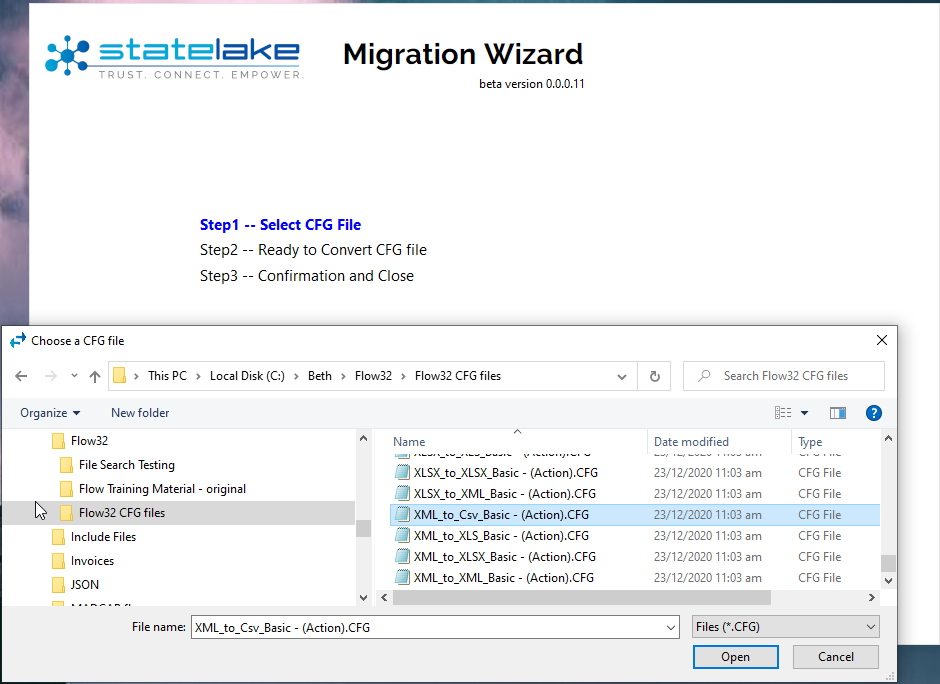
Click Next to continue.
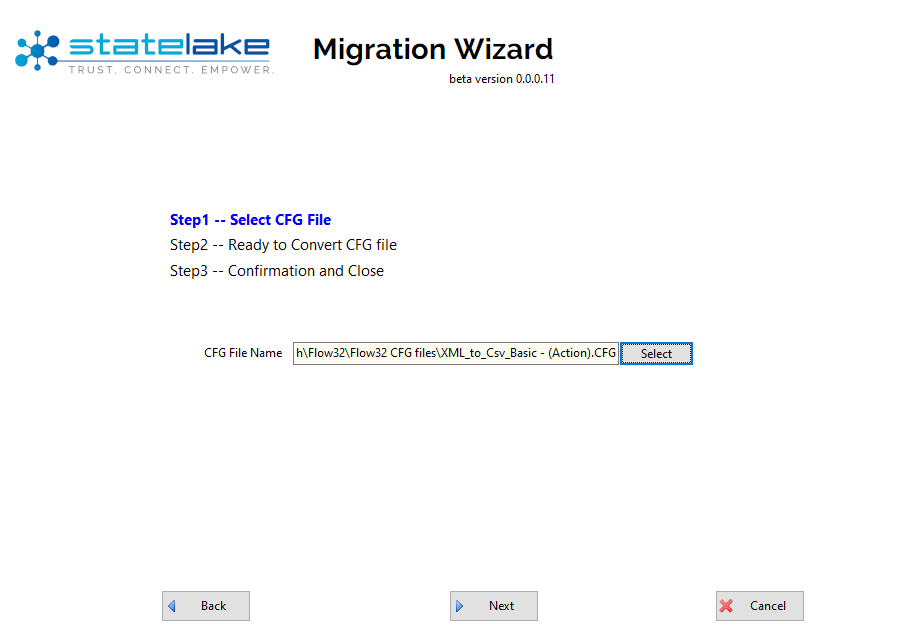
Click Next to continue.

Step 2 – Ready to Convert CFG File – this window shows the name and full path of the source .CFG, file, and the full path and name of the destination .CFG file. The destination file will be saved in the same directory as the source file and has exactly the same name, but the extension is now .SL_CFG - rather than just .CFG.
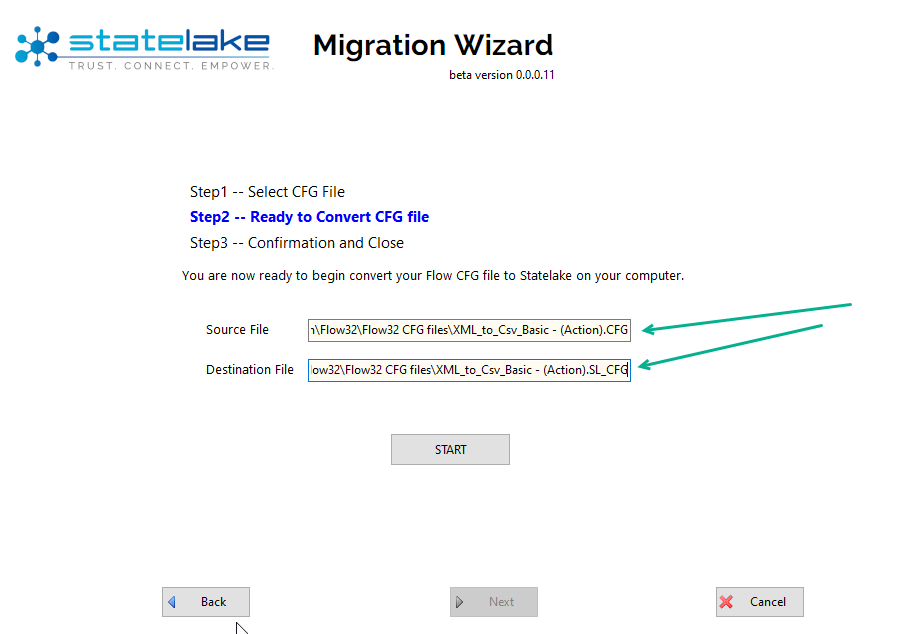

Click on Start to execute the migration. The message CFG File has been migrated! appears once the migration is complete.
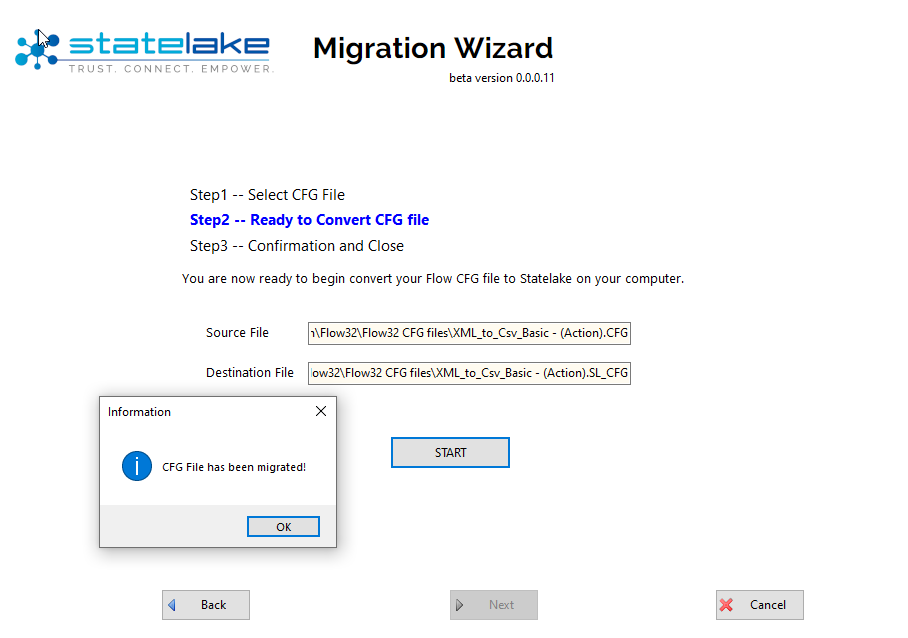
Click OK to close the message box.
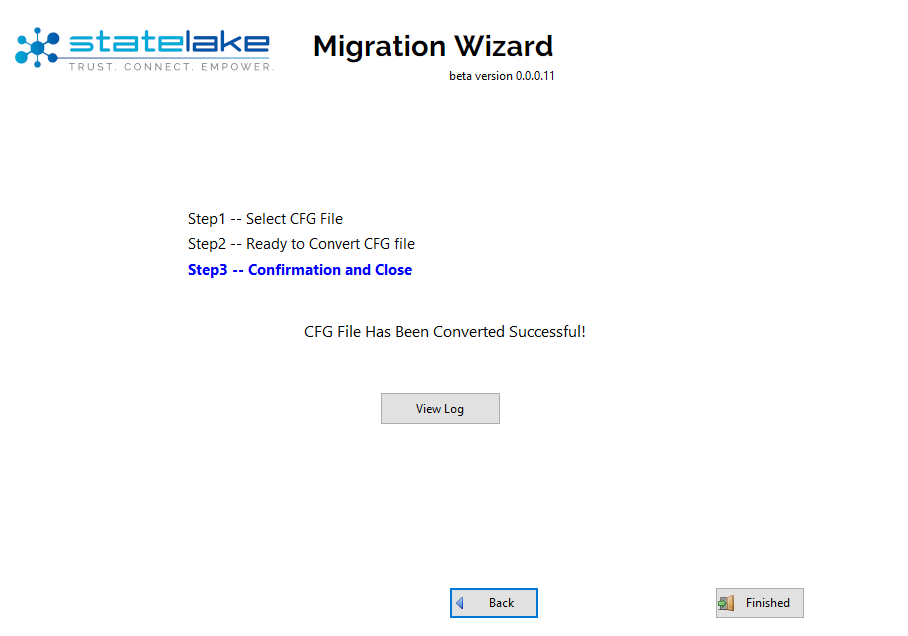
Step 3 - Confirmation and Close - A further message advising the successful completion of the migration will display, and you are able to view the Log by clicking on the View Log button.
You can then either select Finish to exit the wizard, or Back to continue. However, clicking Back will return you to the previous screen only, so click on Back as many times as required to return to the menu screen.
On return to the menu, the history scrolling window lists any CFG export file which has been processed.
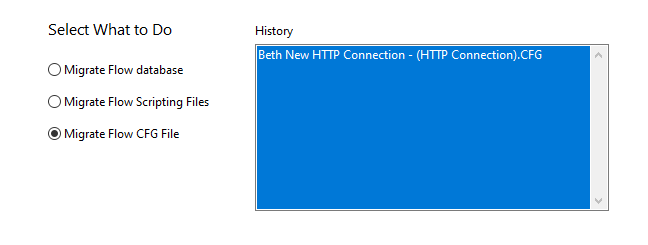
And in File Explorer, you will see the Flow 32bit .CFG file has been migrated to its Statelake 64bit equivalent.
